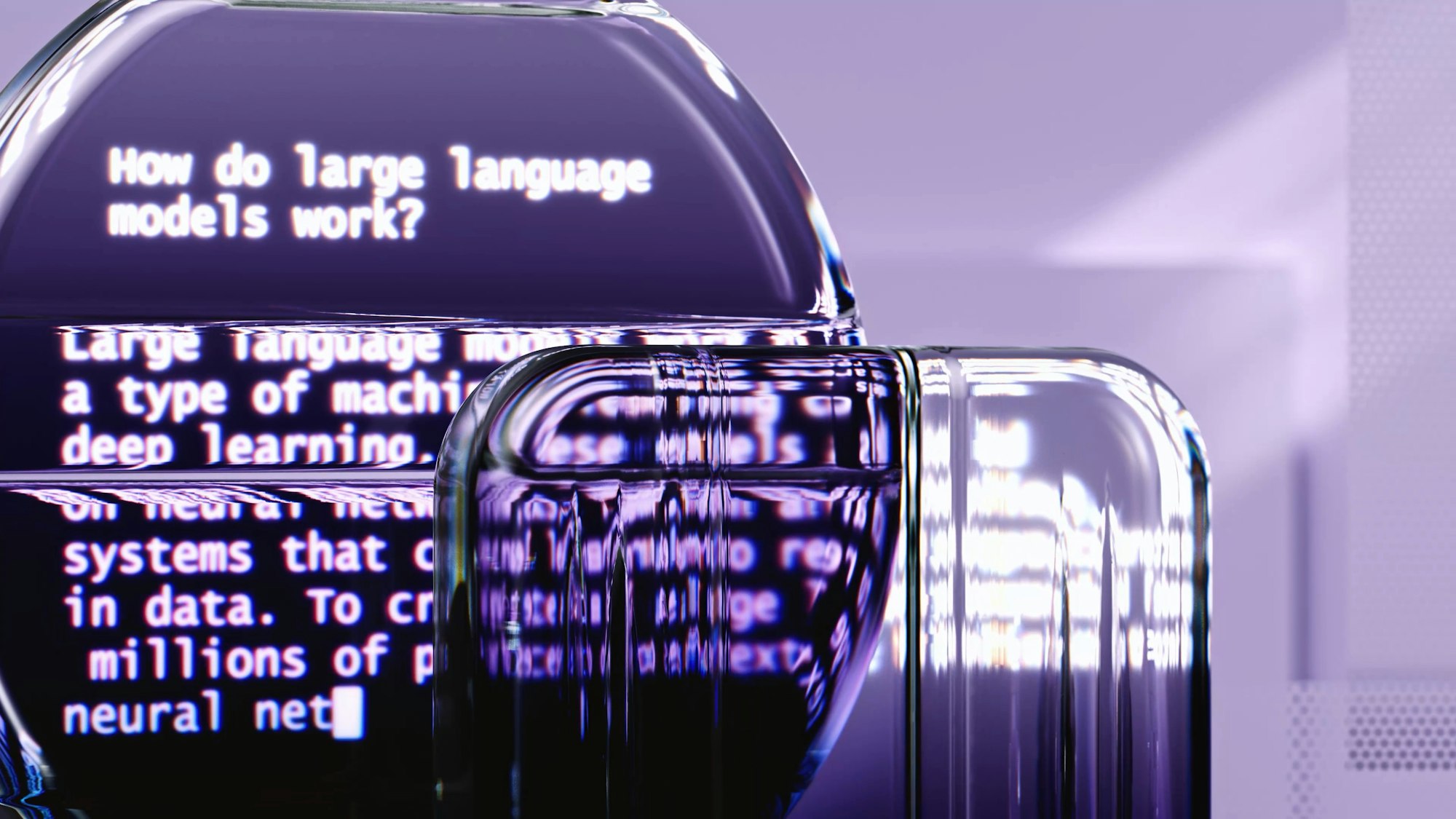In 2023-2024, the marketing world experienced a major shift as AI capabilities reached new heights. Marketing teams now use advanced algorithms and machine learning models to:
- Analyze large amounts of customer data instantly
- Create personalized content on a massive scale
- Predict customer behavior accurately
- Automate complex marketing tasks
- Improve campaign performance in real-time
The impact is clear: businesses can now deliver highly targeted campaigns with precision timing and relevance that was previously impossible to achieve manually. A marketing campaign that once took weeks to plan and execute can now be deployed in hours, with AI systems continuously optimizing performance based on real-time data.
The advancement in natural language processing has enabled AI systems to generate human-like content, while predictive analytics helps identify the perfect moment to engage with each customer. This technological leap has leveled the playing field - small businesses can now compete with larger corporations by using the same advanced AI-powered tools.
The marketing automation landscape has evolved from simple scheduled emails to intelligent systems that adapt and learn from every customer interaction, marking a true transformation in how businesses approach digital marketing.
The Evolution of AI Marketing Automation
Marketing automation has changed a lot since it first started in the 1980s. We've come a long way from simple email autoresponders to the complex AI-powered systems we have today. This evolution represents a major shift in how businesses interact with their customers.
1980s - Early Automation
- Database marketing emerges
- Basic customer segmentation
- Rudimentary email automation
1990s - Digital Revolution
- Introduction of CRM systems
- Web-based marketing tools
- Automated email campaigns
2000s - Integration Era
- Multi-channel marketing platforms
- Behavior-based triggers
- Advanced segmentation capabilities
2010s - AI Integration
- Predictive analytics implementation
- Machine learning algorithms
- Natural language processing
- Automated A/B testing
2020s - Intelligent Automation
- Real-time personalization
- AI-driven decision making
- Cross-channel automation
- Behavioral pattern recognition
The integration of AI technologies has completely transformed traditional marketing automation systems. Nowadays, modern platforms use complex algorithms to analyze large amounts of customer data. This allows them to create predictive models and make automated decisions without human intervention.
These advancements have brought about a new era in marketing automation:
1. Intelligent Targeting
AI systems can now identify the best audience segments based on their behavior patterns.
2. Dynamic Content Creation
Automated generation of personalized content for different user groups is now possible.
3. Predictive Analytics
Advanced forecasting techniques are being used to predict customer behaviors and campaign performance.
4. Automated Optimization
Campaigns can be adjusted in real-time based on performance data, leading to better results.
The shift from rule-based automation to AI-driven personalization is a significant change in marketing technology. Unlike before when humans had to manually intervene for complex decisions, modern systems can now process intricate data sets, recognize patterns, and make independent choices.
This technological evolution has allowed marketers to go beyond basic automated responses and create tailored customer experiences on a large scale. With the help of machine learning algorithms and advanced analytics, marketing automation has become an effective tool for delivering targeted messages across various channels simultaneously.
Core Components of Modern AI Marketing Automation
Modern AI marketing automation platforms are built on sophisticated components that work together to deliver personalized customer experiences at scale. Let's dive into these essential building blocks:
1. Real-Time Data Processing Engine
This component is responsible for tracking and analyzing customer behavior in real-time. It enables marketers to understand how users are interacting with their brand and make immediate adjustments to their campaigns. Key features include:
- Customer behavior tracking across multiple touchpoints
- Instant analysis of user interactions and engagement patterns
- Dynamic segmentation based on live user actions
- Automated trigger responses to specific customer behaviors
2. Advanced Analytics Framework
Once the real-time data has been processed, it needs to be analyzed to derive meaningful insights. This is where the advanced analytics framework comes into play. It uses historical data and statistical models to predict future outcomes and optimize marketing strategies. Some of its capabilities include:
- Predictive modeling for customer lifetime value
- Churn risk assessment algorithms
- Purchase propensity scoring
- Multi-channel attribution modeling
3. Natural Language Processing (NLP) Systems
NLP systems are crucial for understanding and generating human language. In the context of marketing automation, they can be used to analyze customer feedback, generate content, and personalize messaging. Here are some ways NLP is applied:
- Automated content generation for emails and social posts
- Sentiment analysis of customer feedback
- Smart content optimization based on engagement metrics
- Language pattern recognition for personalized messaging
4. Data Integration and Management
To deliver truly personalized experiences, marketers need a holistic view of each customer. This requires integrating data from various sources and creating unified customer profiles. The data integration and management component handles this task by:
- Combining data from multiple platforms (e.g., CRM, website analytics, social media)
- Performing historical data analysis to identify patterns
- Synchronizing data across different channels
- Validating and cleansing data in real-time
These components form an interconnected ecosystem that powers sophisticated marketing campaigns.
The real-time processing engine captures and analyzes customer interactions as they happen, enabling immediate response to customer behaviors. This instant analysis feeds into the advanced analytics framework, which uses historical data to predict future outcomes and optimize campaign performance.
NLP capabilities transform raw data into actionable insights and engaging content. These systems can analyze customer communications, generate personalized messages, and optimize content based on performance metrics. The result is more relevant, engaging communications that resonate with your target audience.
The data integration layer ties everything together, creating a unified view of customer interactions across all touchpoints. This comprehensive data management ensures that your marketing automation system can deliver consistent, personalized experiences regardless of how customers interact with your brand.

Key Features Driving the Recent Leap Forward in AI Marketing Automation
AI marketing automation has undergone a revolutionary transformation with the introduction of cutting-edge features that redefine customer engagement and campaign management.
1. Hyper-Personalization at Scale
- Real-time behavioral tracking across multiple touchpoints
- Dynamic content adaptation based on individual user preferences
- Automated A/B testing for personalized messaging
- Custom-tailored product recommendations using collaborative filtering
2. Predictive Modeling and Campaign Forecasting
- Advanced algorithms predict customer lifetime value
- Churn prediction models identify at-risk customers
- Purchase propensity scoring for targeted promotions
- Campaign performance forecasting with 85%+ accuracy rates
3. AI-Powered Chatbots and Conversational Marketing
- Natural language understanding for context-aware responses
- Sentiment analysis to gauge customer emotions
- Multi-language support with automated translation
- 24/7 personalized customer support across channels
4. Dynamic Journey Orchestration
- Automated customer segmentation based on behavior patterns
- Cross-channel campaign synchronization
- Real-time journey mapping and optimization
- Trigger-based messaging systems
These features create a symbiotic relationship between marketing efficiency and customer satisfaction. Hyper-personalization engines analyze thousands of data points to create unique experiences for each customer. The predictive modeling capabilities enable marketers to anticipate customer needs and optimize campaign timing.
Advanced chatbots now handle complex conversations, learning from each interaction to improve response accuracy. These AI-powered assistants manage multiple customer touchpoints simultaneously, providing consistent experiences across platforms.
Dynamic journey orchestration adapts to customer behavior in real-time, creating fluid pathways that evolve with changing preferences. This automated responsiveness ensures relevant content delivery at optimal moments, significantly improving engagement rates and conversion potential.
Case Study Spotlight: BrazeAI™ and Industry Examples of Successful Implementation
BrazeAI™ is leading the way in AI marketing automation innovation, showing impressive success in applying real-time intelligence. The platform's implementation at Delivery Hero, a global food delivery giant, highlights its game-changing abilities:
- 167% increase in customer engagement
- 25% decrease in customer churn
- $2.3M extra revenue through personalized recommendations
BrazeAI™'s real-time decisioning engine processes millions of customer interactions instantly, creating dynamic segments that evolve with each customer action. This technology enabled Delivery Hero to deliver personalized push notifications based on ordering patterns, resulting in a 43% higher conversion rate.
Other industry leaders have achieved similar success through AI-driven marketing automation:
Nike's Consumer Direct Offense
- Implemented predictive analytics for inventory management
- Created personalized product recommendations
- Achieved 30% increase in direct-to-consumer sales
Sephora's Virtual Artist
- AI-powered makeup try-on experience
- Individual product recommendations based on skin type
- 11% boost in mobile conversion rates
Starbucks' Deep Brew Initiative
- Real-time inventory optimization
- Personalized drink suggestions
- 15% increase in mobile order value
These implementations demonstrate the practical impact of AI marketing automation across different sectors. The technology's ability to process vast amounts of data and deliver personalized experiences at scale has transformed customer engagement strategies. Companies using these advanced systems report significant improvements in customer lifetime value, operational efficiency, and revenue generation.
Benefits of AI Marketing Automation Technology
AI marketing automation offers significant benefits to businesses in various ways. Companies that adopt these advanced solutions see tangible improvements in their marketing processes and overall results.
Performance Benefits
Here are some key performance benefits of using AI marketing automation:
- Time Efficiency: Marketing teams save 6-8 hours per week through automated campaign management and content distribution
- Cost Reduction: 25-30% decrease in customer acquisition costs through optimized targeting
- Lead Quality: 35% improvement in lead qualification accuracy using AI-powered scoring systems
- Campaign Performance: 40% increase in email open rates through AI-optimized send times
- Customer Retention: 20% boost in customer lifetime value through personalized engagement
Revenue Impact
Companies that use AI marketing automation report significant improvements in their return on investment (ROI):
- Reduced marketing overhead by 45%
- Increased conversion rates by 30%
- Generated 2-3x more qualified leads
- Achieved 27% higher sales growth
Operational Advantages
AI marketing automation also brings several operational advantages:
Enhanced Decision Making
AI-powered analytics provide real-time insights for faster, data-driven decisions. Marketing teams can identify trends, predict outcomes, and adjust strategies instantly.
Resource Optimization
Automated workflows free up creative teams to focus on strategic initiatives while AI handles repetitive tasks like:
- Content scheduling
- Social media posting
- Email campaign management
- Performance reporting
Scalability Benefits
AI marketing platforms enable businesses to:
- Handle larger customer databases without additional staff
- Deploy campaigns across multiple channels simultaneously
- Maintain consistent brand messaging at scale
- Adapt to market changes in real-time
These measurable improvements show how AI marketing automation is transforming traditional marketing operations into high-performing, data-driven programs that create real business value.

Challenges and Ethical Considerations Associated with AI Marketing Automation Advancements
The rapid advancement of AI marketing automation brings significant challenges that businesses must address head-on. Data privacy stands as a critical concern, with regulations like GDPR and CCPA demanding strict compliance in automated marketing campaigns.
Key Privacy Challenges:
- Customer data collection and storage protocols
- Cross-border data transfer restrictions
- User consent management
- Data retention policies
- Third-party data sharing limitations
The ethical implications of AI-driven decision-making raise important questions about fairness and transparency. Automated systems can inadvertently perpetuate biases present in training data, leading to discriminatory marketing practices.
Ethical Considerations for Implementation:
- Algorithmic bias detection and prevention
- Transparent disclosure of AI usage
- Human oversight in automated decisions
- Fair targeting practices
- Customer data protection measures
Organizations must establish robust governance frameworks to maintain ethical standards while leveraging AI capabilities. This includes regular audits of automated systems, clear documentation of decision-making processes, and mechanisms for handling customer complaints.
The challenge extends to maintaining authentic customer relationships amid increasing automation. Businesses need to strike a delicate balance between personalization and privacy, ensuring their AI systems respect individual preferences while delivering value.
These considerations shape how organizations approach AI marketing automation implementation, influencing technology selection, deployment strategies, and operational protocols. Success depends on addressing these challenges proactively while maintaining customer trust and regulatory compliance.
The Role of Machine Learning in Data-Driven Decision Making Within Marketing Contexts
Machine learning transforms raw marketing data into actionable insights through a systematic pipeline of processes. Each stage builds upon the previous, creating a robust framework for data-driven decision making.
1. Data Collection and Preprocessing
- Real-time customer behavior tracking
- Purchase history analysis
- Social media engagement metrics
- Website interaction patterns
- Customer feedback and sentiment data
2. Feature Engineering and Selection
- Identifying relevant customer attributes
- Creating meaningful data combinations
- Removing redundant information
- Standardizing data formats
- Handling missing values
3. Model Training and Validation
- Predictive modeling for customer behavior
- Segmentation algorithms for targeted campaigns
- A/B testing optimization
- Cross-validation techniques
- Performance metric tracking
The machine learning pipeline enables marketers to:
- Predict customer lifetime value
- Identify high-value acquisition channels
- Optimize campaign timing
- Personalize content delivery
- Detect churn risk patterns
Marketing teams leverage these insights to create data-backed strategies. The continuous learning process adapts to changing customer behaviors, market trends, and campaign performance metrics. This dynamic approach allows marketers to refine their targeting, adjust messaging, and allocate resources effectively.
Advanced algorithms process vast amounts of customer data to reveal hidden patterns and correlations. These insights drive precise audience segmentation, content recommendations, and campaign optimization decisions. The integration of machine learning into marketing workflows has revolutionized how brands understand and respond to customer needs.

Future Trends Shaping the Next Generation of AI Marketing Automation Solutions
The world of AI marketing automation is constantly changing, with new and exciting developments that have the potential to completely transform how businesses engage with their customers. Here are some of the key trends that are currently reshaping the way companies connect with their target audience:
1. Dynamic Context Understanding
This trend focuses on understanding the various factors that influence a customer's behavior and preferences in real-time. It involves analyzing environmental factors such as location, time of day, and weather conditions, as well as recognizing behavioral patterns across different devices and platforms. By having a clear understanding of the context in which a customer interacts with a brand, businesses can tailor their marketing messages and offers accordingly.
2. Advanced Personalization Technologies
Personalization has always been a key aspect of marketing, but with advancements in technology, it is now possible to take it to a whole new level. This trend involves integrating emotional intelligence into customer communications, synchronizing experiences across multiple channels, and using predictive analytics to anticipate a customer's needs and desires. By delivering highly personalized messages at the right moment, businesses can significantly increase their chances of capturing a customer's attention and driving conversions.
3. Enhanced Data Processing Capabilities
Data is at the heart of every successful marketing strategy, and being able to process and analyze it quickly and efficiently is crucial. This trend focuses on leveraging emerging technologies such as edge computing and quantum computing to enhance data processing capabilities. Edge computing allows for instant decision-making by processing data closer to where it is generated, while quantum computing has the potential to revolutionize data analysis by solving complex problems at an unprecedented speed. These advancements will enable marketers to make more informed decisions in real-time and deliver highly relevant experiences to their customers.
The next generation of AI marketing solutions will be powered by these trends, enabling businesses to create truly personalized and contextually relevant experiences for their customers. By understanding the subtle nuances of each individual's preferences and motivations, brands can build stronger connections and drive long-term loyalty.
Envisioning a Collaborative Paradigm Between Marketers and Machines For Strategic Execution
The future of marketing lies in the seamless integration of human creativity and AI capabilities. This collaborative approach creates a powerful synergy where marketers and machines complement each other's strengths:
Human Marketers' Role:
- Strategic thinking and creative direction
- Emotional intelligence and brand storytelling
- Complex decision-making based on market insights
- Relationship building with key stakeholders
AI Systems' Contribution:
- Data processing and pattern recognition
- Real-time campaign optimization
- Automated task execution
- Predictive analytics and forecasting
The ideal collaboration model enables marketers to focus on high-value activities while AI handles repetitive tasks. You'll find AI systems supporting creative processes by generating initial content drafts, which human marketers then refine and enhance with their unique insights and brand voice.
This partnership extends to campaign execution, where AI tools analyze performance metrics and suggest optimizations, leaving strategic decisions to human marketers. The result is a dynamic workflow where machines augment human capabilities rather than replace them.
Modern marketing teams are adopting hybrid approaches that combine AI-driven automation with human oversight. These teams leverage AI for data analysis and campaign execution while maintaining human control over brand messaging and strategic direction. This balanced approach ensures marketing initiatives remain both efficient and authentic.
Conclusion
AI marketing automation is a game-changer in today's digital world. It allows brands to connect with their audiences in a whole new way by delivering personalized experiences on a large scale.
How AI adoption empowers marketers:
- Marketers have more freedom to focus on creative strategy
- Teams can spend more time developing innovative campaigns
- Organizations gain a deeper understanding of their customers through data insights
With the rapid growth of AI technologies, it's important for marketers to stay proactive. This means continuously learning and adapting while still maintaining genuine human connections in their automated systems.
"The future belongs to those who can harmoniously blend human creativity with AI capabilities."
Your next steps to leverage AI marketing automation:
- Assess your current marketing automation capabilities
- Identify specific areas where AI can enhance your strategies
- Research and test AI-powered tools that align with your goals
- Start small, measure results, and scale successful implementations
- Invest in team training to maximize AI tool effectiveness
Ready to transform your marketing operations? Start by exploring AI-powered platforms like BrazeAI™ or schedule a consultation with AI marketing specialists. The time to act is now - your competitors are already making their move.
Take control of your marketing future - embrace AI automation today.
FAQs (Frequently Asked Questions)
What is AI marketing automation and why is it significant in digital marketing ?
AI marketing automation refers to the use of artificial intelligence technologies to streamline, optimize, and personalize marketing campaigns. Its significance lies in enabling businesses to deliver highly targeted campaigns at scale, enhancing customer engagement and improving overall marketing effectiveness in the digital landscape.
How has AI transformed the evolution of marketing automation ?
The evolution of marketing automation has progressed from manual processes to intelligent automated systems through the integration of AI technologies. Key milestones include the adoption of AI-driven personalization, predictive analytics, and intelligent automation, which have collectively propelled marketing automation to new heights.
What are the core components powering modern AI marketing automation platforms ?
Modern AI marketing automation platforms are powered by real-time customer behavior analysis, utilization of historical data, generation of predictive insights, and natural language processing (NLP). These components enable platforms to process data dynamically and create engaging, relevant content for automated campaigns.
Which innovative features have driven recent advancements in AI marketing automation ?
Recent advancements have been driven by features such as hyper-personalization based on individual customer profiles, predictive modeling for accurate campaign forecasting, advanced chatbots facilitating seamless customer interactions, and dynamic journey orchestration that tailors experiences throughout the customer lifecycle.
What benefits can organizations realize by adopting advanced AI marketing automation technologies ?
Organizations embracing advanced AI marketing automation can achieve enhanced operational efficiency through automation tools, improved return on investment (ROI), and the ability to deliver personalized experiences at scale. These benefits empower marketers to focus on higher-level strategic initiatives while optimizing campaign performance.
What challenges and ethical considerations should businesses be aware of when implementing AI marketing automation ?
Businesses must address challenges such as ensuring compliance with data privacy regulations and maintaining ethical standards in automated decision-making processes. It is crucial to balance leveraging AI capabilities with respecting user privacy and fostering trust through transparent and responsible use of data in automated campaigns.





